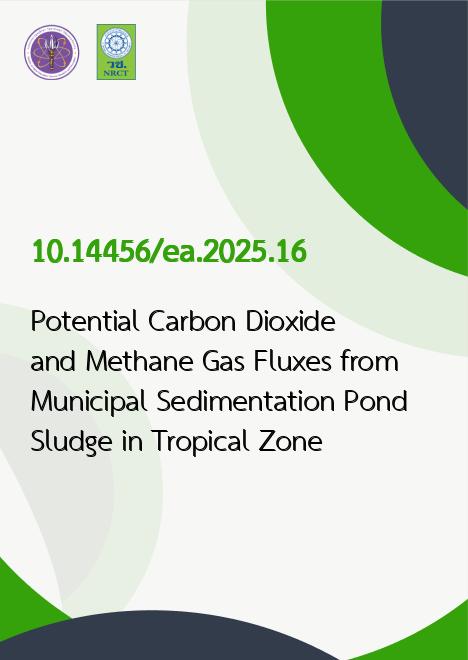
|
Potential Carbon Dioxide and Methane Gas Fluxes from Municipal Sedimentation Pond Sludge in Tropical Zone |
|---|---|
| รหัสดีโอไอ | |
| Creator | Parkin Maskulrath |
| Title | Potential Carbon Dioxide and Methane Gas Fluxes from Municipal Sedimentation Pond Sludge in Tropical Zone |
| Contributor | Kyaw Wai Thwin, Onanong Phewnil, Surat Bualert, Thanit Pattamapitoon, Kasem Chunkao, Manlika Srichomphu, Chalisa Tudsanaton |
| Publisher | Thai Society of Higher Education Institutes on Environment |
| Publication Year | 2568 |
| Journal Title | EnvironmentAsia |
| Journal Vol. | 18 |
| Journal No. | Special |
| Page no. | 1-8 |
| Keyword | Municipal Wastewater, Sludge gas emission, GHG emission |
| URL Website | http://www.tshe.org/ea/index.html |
| Website title | EnvironmentAsia |
| ISSN | 1906-1714 |
| Abstract | Rapid urbanization, particularly in tropical cities, has intensified challenges in wasteand wastewater management, contributing to greenhouse gas emissions. This study evaluatescarbon dioxide and methane emissions from sludge in the sedimentation pond of the PhetchaburiMunicipal wastewater treatment system. Sludge samples were analyzed over 30 days underaerobic and anaerobic conditions. Carbon dioxide emissions peaked early due to aerobicmicrobial digestion, while methane production peaked between days 6 and 15 during anaerobicdegradation. Methane emissions declined thereafter due to carbon depletion and an unfavorableC:N ratio of 6.18:1, inhibiting further methanogenesis. Temperature fluctuations influencedgas production, with higher emissions observed during initial digestion stages. Estimated totalemissions from the collection pond were approximately 102,317.23 mg/day of methane and31,840.67 mg/day of carbon dioxide. While the results can be extrapolated into the potentialsource of greenhouse gas emission into the atmosphere, the study also suggested that withthe potential further studies on the vertical profile of these gases emission through the watercolumn would be needed as the chemical interaction would affect to overall concentration at thesurface. Thus, these findings underscore the need for improved sludge management strategiesto mitigate the climate impact of municipal wastewater treatment in tropical regions. |